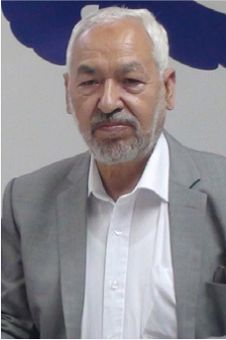Ghannouchi is one of the world’s leading Islamic thinkers and one of the most influential Arab politicians in the post-Arab Spring period. Authoring over 20 books, he has led a life filled with imprisonment, exile, and governance.
Birth: 1 January 1941 (Age: 84)
Source of Influence: Political, Scholarly
Influence: Political, Scholarly
School of Thought: Sunni
Status: Featured in current year
Ghannouchi is one of the world’s leading Islamic thinkers and one of the most influential Arab politicians in the post-Arab Spring period. Authoring over 20 books, he has led a life filled with imprisonment, exile, and governance.
Politics: Ghannouchi co-founded Ennahda Movement (“Renaissance”) in the 1970s and was imprisoned several times before being forced into exile. Ennahda is a political party based on Islamic values and supports the concept of a multi-party democracy. In 2012 he received the Chatham House Prize for “the successful compromises each achieved during Tunisia’s democratic transition” and in 2016 he received the Jamnalal Bajaj Award for “promoting Gandhian values outside India”.
Post-Arab Spring: With the fall of President Ben Ali, Ghannouchi returned to Tunisia in January 2011 having spent 20 years in exile. He led the Ennahda Party to victory in the October 2011 national elections. In 2014, Ghannouchi quit government and handed power over to a technocratic government. When elections were held later that year, Ennahda, without Ghannouchi leading them, came second to the Nidaa Tounes party. The 2019 elections produced a deeply fragmented parliament with the government collapsing just five months into its term. Ghannouchi, who was elected speaker of parliament, narrowly won a vote of confidence in July 2020.
Imprisonment Again: After parliament was suspended in 2021 by democratically elected President Saied, many opposition leaders started being arrested. Ghannouchi’s turn came in April 2023 and he was sentenced to a year in prison on terrorism-related charges. In February 2024, he was sentenced along with his son-in-law to three years in prison for illicit foreign financing. In July 2024, his sentence to three years in prison was confirmed by the Criminal Chamber of the Judicial and Financial Unit.
News about Rached Ghannouchi
- No approved news items yet.



